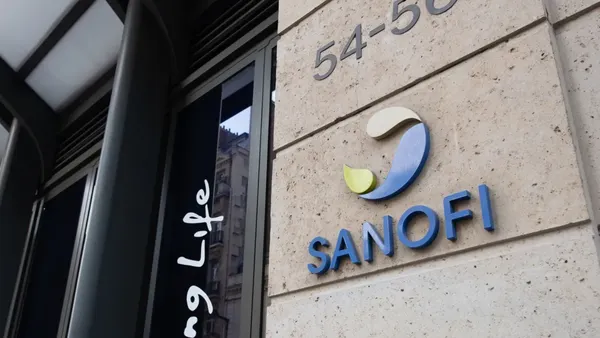Dive Brief:
- Looking to defend its giant cardiometabolic health franchise, Eli Lilly is licensing a technology from Swedish biotechnology firm Camurus that promises to produce longer-acting medications.
- Camurus’ FluidCrystal technology is designed to methodically release a therapeutic drug substance into the body over a period of days or months. After an injection, the solution interacts with bodily fluids to transform into a liquid crystalline gel. The gel holds the active ingredient and then slowly degrades, releasing medicine.
- The deal includes an unspecified upfront payment as part of an initial package that may be worth as much as $290 million, Camurus said Tuesday. That figure also includes payments for reaching certain development and regulatory milestones. Another $580 million could be available for meeting sales goals, along with mid-single digit royalties for successful products.
Dive Insight:
Lilly and rival Novo Nordisk revolutionized diabetes and obesity treatment over the last few years with GLP-1 medicines that opened up one of the biggest markets the pharmaceutical industry has ever seen. In the first quarter alone, Lilly raked in more than $6 billion from sales of tirzepatide, sold as Mounjaro for diabetes and Zepbound for obesity. Novo brought in even more from its Ozempic and Wegovy.
Now Lilly and Novo are faced with defending the market as a raft of competitors vie to offer newer and better options. Both companies have bulked up their pipelines; Lilly recently claimed success in a Phase 3 trial of a GLP-1 medicine that can be taken in pill form instead of injection. It also has a triple-acting drug in development and a number of other experimental medicines that work differently.
The Camurus deal allows Lilly to apply the long-acting technology to as many as four of its drug compounds. That may help the company stave off competitors such as Metsera, which in January announced promising research for its experimental long-acting GLP-1 shot.
Meanwhile, Roche recently announced a $1.65 billion deal to expand its obesity pipeline and Amgen and Viking Therapeutics are both moving into late-stage studies of potential rival treatments. Companies are also working on ways to augment the Lilly and Novo medicines. Veru is testing a drug designed to help preserve muscle when taken with Novo’s Wegovy. Regeneron and others are conducting similar research.













